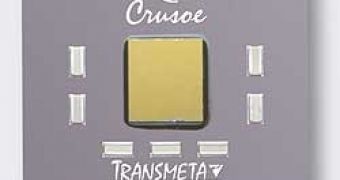Chip manufacturer Transmeta was about to be torn into pieces by its own angry shareholders because of its poor performance in the third quarter of 2007. Formerly known as a fierce competitor in the x86 processor market, the company posted a revenue of only $44,000 in the third quarter of 2007, which drove its shareholders mad.
Banking company Riley Investment, who owns about seven percent of Transmeta, wants to pay $15.50 a share in cash in order to transform the money-bleeding company into a patent joint and set it back on track. Riley also asked for a change into the board of directors, that ended with a "shareholder's derivative action" lawsuit filed in early December last year.
Transmeta is currently accused of poor management that wastes the company's assets and abuses its position. "Transmeta's general counsel, John Horsley, was paid an outrageous, illegal and unconscionable bonus of over $10 million simply for doing his job and settling an intellectual property lawsuit against Intel ten months after it was filed, and likely settling for less money than was reasonable due to the incentive to settle," claims Riley in a complaint.
The company is also alleged to have awarded $12 million to CEO Lester Crudele and CFO Sujan Jain, immediately after they settled the lawsuit with Intel over Transmeta's intellectual property. Riley will withdraw the payment proposal if Transmeta company does not reply by February 8.
Founded in 1995, Transmeta failed in achieving better low-power x86 processors than Intel. This pursuit, however, made the company post fabulous yearly losses, and was forced to transform into supplier of x86 intellectual property (IP). Immediately after the transition, Transmeta sued Intel for some alleged infringements upon ten of Transmeta's patents regarding chips' power efficiency and processor architecture. Last fall, Intel settled the lawsuit for $250 million.

 14 DAY TRIAL //
14 DAY TRIAL //